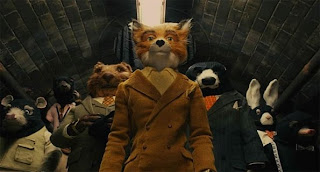
Before seeing "The Lovely Bones", I thought that, perhaps, all the negative reviews were a result of misunderstood subject matter. Maybe it was too original for people. Maybe it didn't resemble any of the conventions they anticipated it to and so they simply rebelled against wrapping their mind around it. And then I saw the movie and realized there is nothing to be misunderstood when you simply can't understand the film in the first place.
I've become accustomed to long movies from Peter Jackson, but at a mere 2 hours and 15 minutes the Subjective Time in this one is by far the longest. The movie is poorly structured without any sort of discernible arch... or at least one that I cared about. It's like the whole thing is cut up into sequences and scenes that were assembled apart from the whole and then strung together by a few very weak threads. The shifts and switchbacks are jarring and untamed. I read the book and I don't know if I could tell you what this movie is about. I found myself in my own "In-between" as I tried to decide whether it was worth trying to enjoy or should I just give up.
Part of the brilliance of "King Kong" (2005) was that it was a massive film that was given a level tenderness. It took its time. Everything could be absorbed appropriately and the emotions ran high. Jackson, however, takes a major step backwards as "The Lovely Bones" seems to have been treated as if it was established as a tender story and he desired to make it massive. It's excessively stylized and overdramatized for something with the level of tragedy and humanity it's suppose to have. None of the emotions that it wanted me to attain were earned.
For a character-driven story, the characters have very little presence. This is a family tragedy without the family. There is no sense of the supposed coping that happens. This should have been about a family's journey towards a world without one of their own and the connections that result. There should have been despair and heart ache over the life the characters longed for and wanted but were denied at no fault of their own. Instead I ached for the movie I longed for but was denied at the fault of the filmmakers.
I will forever believe this is a story that could make a great film. In this case, it didn't happen. Nowhere close, even if it does have good moments. I will stand for the visuals in this film. The effects are good and the cinematography rather splendid (although unfortunately the editing is too annoying to fully enjoy either). Much of the imagery is beautiful. The opening scenes play out effectively enough for the most part, particularly when Susie realizes what's happened to her as she sees her murderer in a bathtub with her own blood everywhere. Maybe I'm just thankful that the scene took place while I could still digest what was happening.
Unfortunately by the time Susie's sister, Lindsey, breaks into the killer's lair, a scene that on its own achieves a desired level of suspense, things were just too awry and I had simply stopped caring at a point about 45 minutes sooner. Alternatively, I listened to the rumbling of "Avatar" playing in the adjacent theatre, wishing that I had instead chosen to see it for a 4th viewing.


